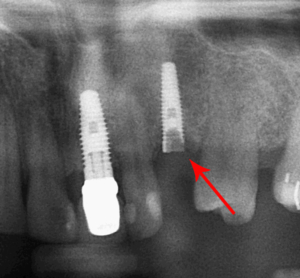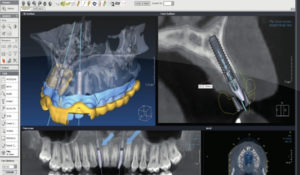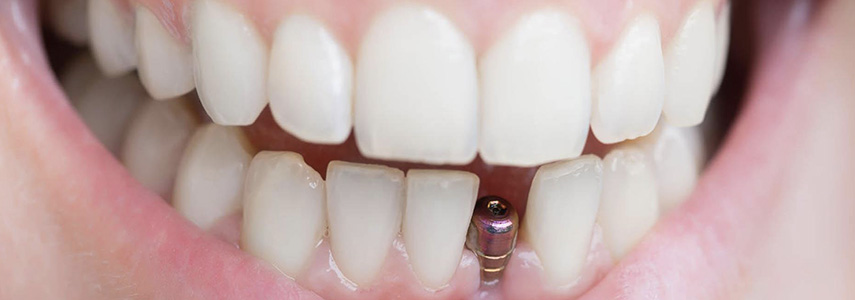Dental implants rarely fracture, because implantology has achieved excellent success rates in recent years. But it is an eventuality that, even if in very minimal percentages, can occur. Let’s see in what circumstances.
When dental implants fracture
To quantify the probabilities of fracture of a dental implant in numerical terms, we can say that, according to scientific data, the cases of fracture are 2 per 1000.
The percentage of implant fractures is therefore 0, or 2%, while the causes for which dental implants fracture are mainly three:
- unscrewing the implant screw;
- excessive masticatory load;
- incorrect planning of implantology.
Unscrewing of the abutment
The unscrewing of the abutment is one of the main causes for which dental implants fracture, can even be considered the  more frequently. This condition can occur when the implants inserted are not premium price, that is, they are not designed to discharge the forces on the most resistant structures and protect the components most at risk of fracture.
more frequently. This condition can occur when the implants inserted are not premium price, that is, they are not designed to discharge the forces on the most resistant structures and protect the components most at risk of fracture.
An economic system, on the other hand, does not have the numerous researches and tests that allow it to eliminate problems like this.
Excessive masticatory load
The insertion of a dental implant must be planned carefully, also taking into account the masticatory load. If the masticatory load is not adequately distributed on all the components of the implant: screw, abutment and prosthetic crown, it may happen that the dental implant fractures.
In particular, a poorly distributed masticatory load affects two parts of the implant: the first turn of the screw and the conjunction between the screw and the stem. It is the parts that give and determine the fracture.
Incorrect planning of implant surgery
Thanks to innovative technologies and the expertise acquired over the years, an implant surgery can be planned in detail. To give stability to the implant and prevent it from going into a fracture, the dentist will have to evaluate the following parameters before inserting the implant:
- bone quality and thickness;
- length and inclination of the screw;
- systems anti-rotation systems;
- masticatory load distribution.
If dental implants fracture, what to do?
In the presence of dental implants, at the first symptom of discomfort, pain, bleeding or swelling it is good to contact a competent dentist to avoid complete implant failure.
In irreversible conditions, ie when the fracture to the dental implant does not allow any type of intervention, the solution is to remove the implant.
If the thickness and quality of the bone allow it, the implant could be removed and replaced, but it would be a very complex operation, which only an implantology center with adequate skills and technologies could perform. In fact, the more interventions a patient suffers, the more complex the situation becomes and difficult to manage and resolve.
For other cases the removal of the fractured component could instead be feasible, even in this case, the removal operation could be very complex and it too must be planned in detail.
















